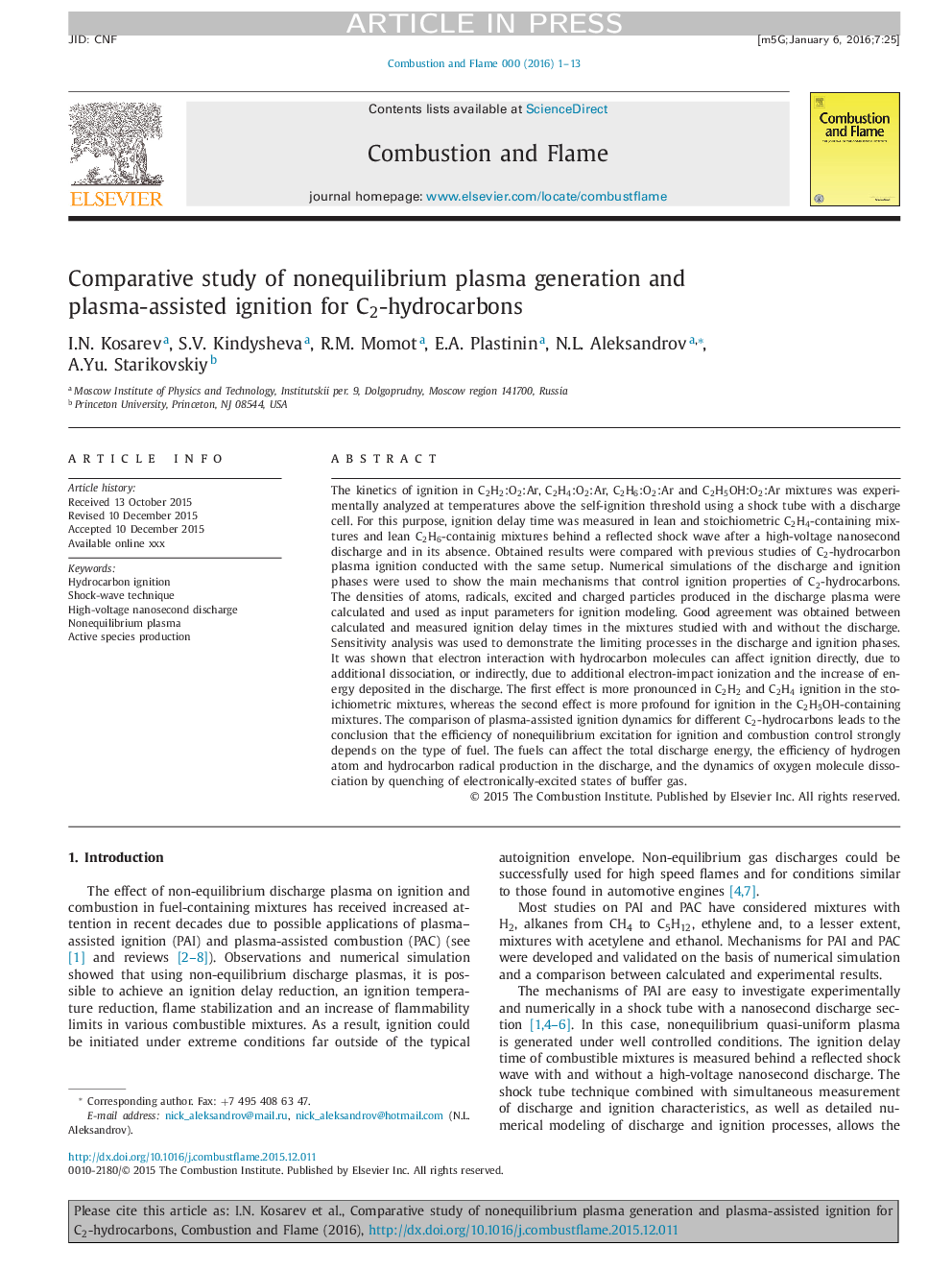| کد مقاله | کد نشریه | سال انتشار | مقاله انگلیسی | نسخه تمام متن |
|---|---|---|---|---|
| 6594209 | 457999 | 2016 | 13 صفحه PDF | دانلود رایگان |
عنوان انگلیسی مقاله ISI
Comparative study of nonequilibrium plasma generation and plasma-assisted ignition for C2-hydrocarbons
دانلود مقاله + سفارش ترجمه
دانلود مقاله ISI انگلیسی
رایگان برای ایرانیان
کلمات کلیدی
موضوعات مرتبط
مهندسی و علوم پایه
مهندسی شیمی
مهندسی شیمی (عمومی)
پیش نمایش صفحه اول مقاله

چکیده انگلیسی
The kinetics of ignition in C2H2:O2:Ar, C2H4:O2:Ar, C2H6:O2:Ar and C2H5OH:O2:Ar mixtures was experimentally analyzed at temperatures above the self-ignition threshold using a shock tube with a discharge cell. For this purpose, ignition delay time was measured in lean and stoichiometric C2H4-containing mixtures and lean C2H6-containig mixtures behind a reflected shock wave after a high-voltage nanosecond discharge and in its absence. Obtained results were compared with previous studies of C2-hydrocarbon plasma ignition conducted with the same setup. Numerical simulations of the discharge and ignition phases were used to show the main mechanisms that control ignition properties of C2-hydrocarbons. The densities of atoms, radicals, excited and charged particles produced in the discharge plasma were calculated and used as input parameters for ignition modeling. Good agreement was obtained between calculated and measured ignition delay times in the mixtures studied with and without the discharge. Sensitivity analysis was used to demonstrate the limiting processes in the discharge and ignition phases. It was shown that electron interaction with hydrocarbon molecules can affect ignition directly, due to additional dissociation, or indirectly, due to additional electron-impact ionization and the increase of energy deposited in the discharge. The first effect is more pronounced in C2H2 and C2H4 ignition in the stoichiometric mixtures, whereas the second effect is more profound for ignition in the C2H5OH-containing mixtures. The comparison of plasma-assisted ignition dynamics for different C2-hydrocarbons leads to the conclusion that the efficiency of nonequilibrium excitation for ignition and combustion control strongly depends on the type of fuel. The fuels can affect the total discharge energy, the efficiency of hydrogen atom and hydrocarbon radical production in the discharge, and the dynamics of oxygen molecule dissociation by quenching of electronically-excited states of buffer gas.
ناشر
Database: Elsevier - ScienceDirect (ساینس دایرکت)
Journal: Combustion and Flame - Volume 165, March 2016, Pages 259-271
Journal: Combustion and Flame - Volume 165, March 2016, Pages 259-271
نویسندگان
I.N. Kosarev, S.V. Kindysheva, R.M. Momot, E.A. Plastinin, N.L. Aleksandrov, A.Yu. Starikovskiy,